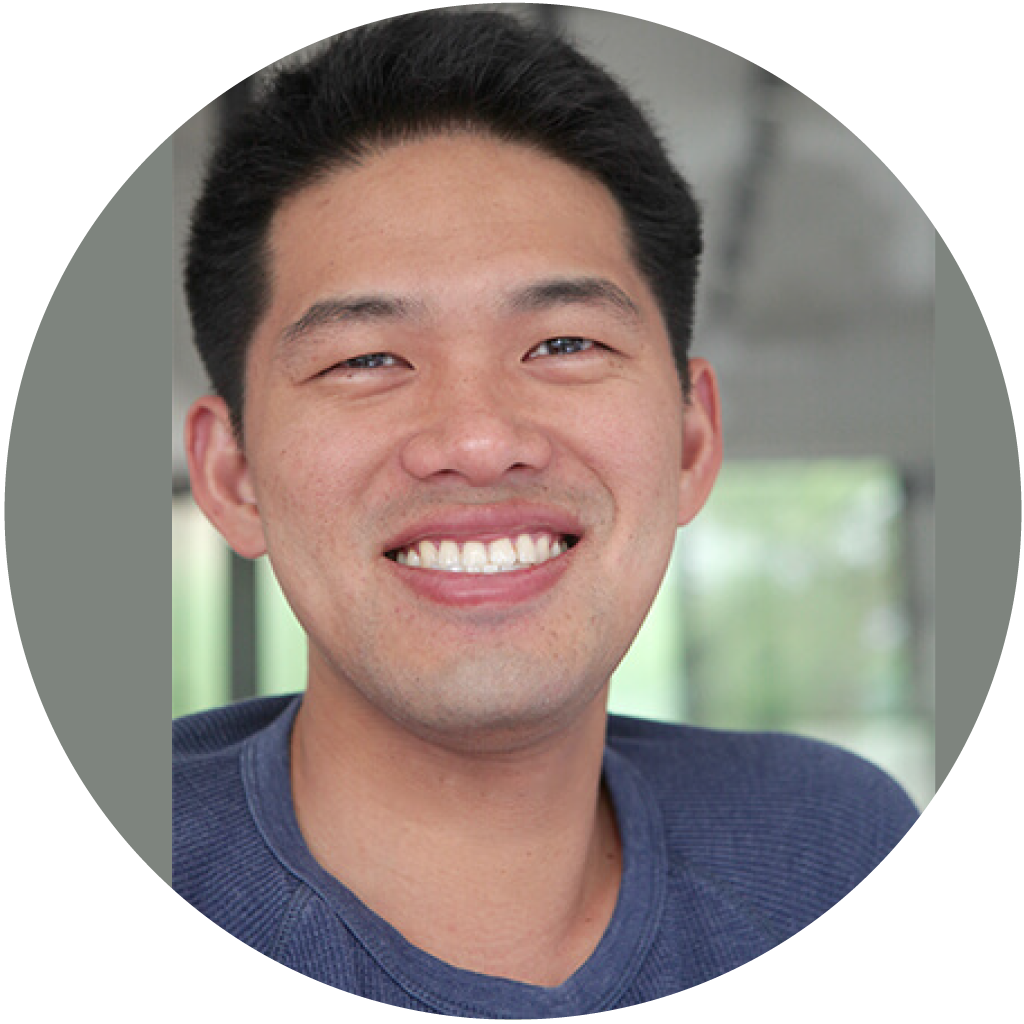Talks on Popular Science Topics

The mathematics of machine learning
12.35 pm - 1.00 pm
Medicine-Science Library Training Room
We will discuss some mathematical aspects of machine learning and how they can be traced back to very old problems in mathematics, such as representing complicated functions or probability distributions as the combination of simpler components. At the same time, we will emphasise how modern developments in Artificial Intelligence lead to new mathematical questions, many of which are yet to be solved.
Assistant Professor Li Qianxiao
Asst Prof Li is an NUS Presidential Young Professor in the Department of Mathematics, Faculty of Science and a Principal Investigator at NUS’ Institute for Functional Intelligent Materials. He graduated with a BA in Mathematics from the University of Cambridge, United Kingdom and a PhD in Applied Mathematics from Princeton University, United States. His research interests include the interplay of machine learning and dynamical systems, control theory, stochastic optimisation algorithms and data-driven methods for science and engineering.
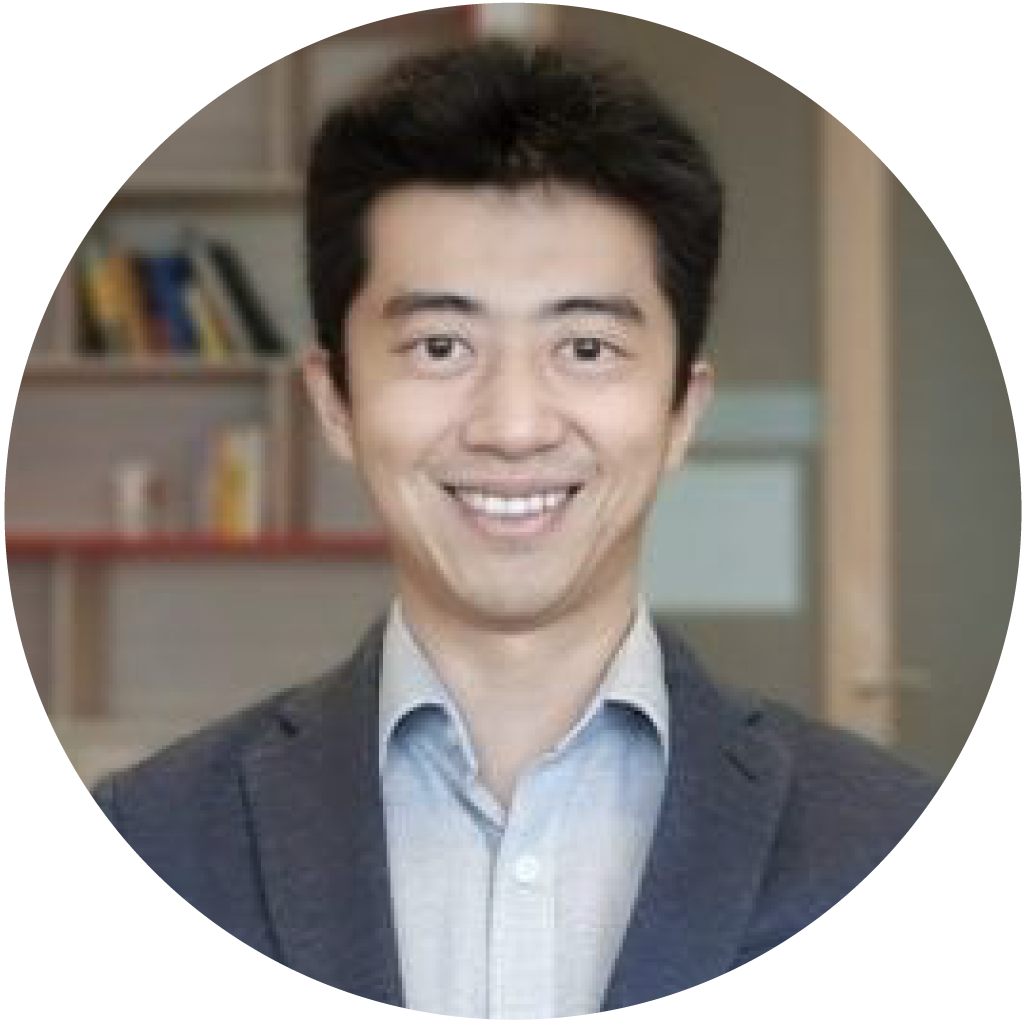

Protecting yourself and others from scientific and medical misinformation
1.30 pm - 1.55 pm
Lecture Theatre 29
Misinformation comes in many guises, but scientific and medical misinformation directly threatens human health. We see the consequences of misinformation in examples around the world, including measles outbreaks, lowered vaccine uptake and on occasion, in dangerous public policies. How can we know who to trust? In science and medicine, can we distinguish misinformation from credible information? This talk will examine two approaches to this problem: “debunking” misinformation when we encounter it and inoculating ourselves against misinformation in advance (“prebunking”).
Professor Greg Tucker-Kellogg
Prof Tucker-Kellogg is a Professor in Practice in the Department of Biological Sciences, Faculty of Science and Director of the Master of Science (MSc) Programme in Biotechnology. He holds a PhD in Molecular Biophysics and Biochemistry from Yale University, United States (US) and was a Jane Coffin Childs Postdoctoral Fellow at Harvard Medical School, US. Prior to joining NUS, he held various research leadership roles in the biotechnology industry, including Chief Technology Officer of Lilly Singapore Centre for Drug Discovery, Senior Director of Bioinformatics at Eli Lilly and Chief Scientific Officer at Lilly Systems Biology.
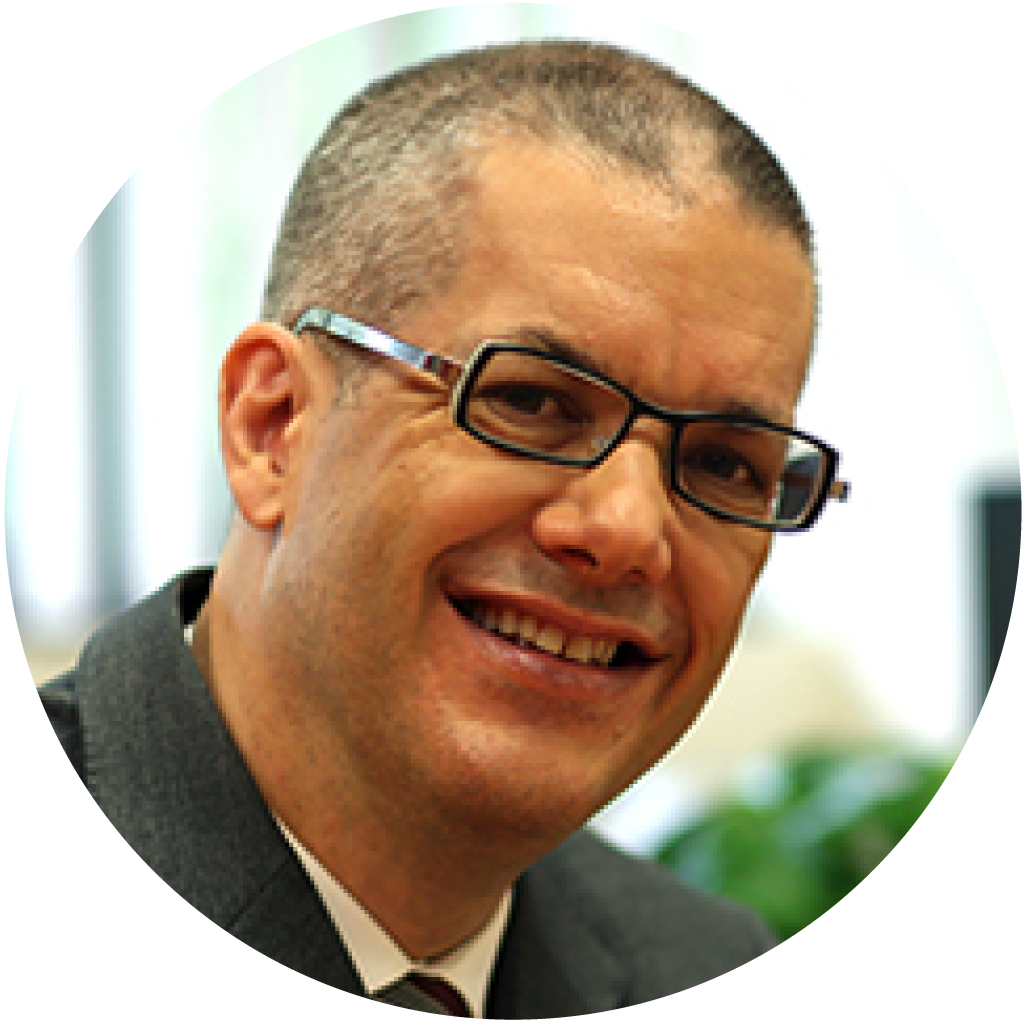

Insects: Nature’s allies for sustainable solutions
3.00 pm - 3.25 pm
Lecture Theatre 29
Insects represent a crucial component of the ecosystem and are often nature's solution to pollination as well as nutrient recycling. This talk will emphasise the value of studying insects as sustainable solutions to environmental challenges.
Assistant Professor Nalini Puniamoorthy
Asst Prof Puniamoorthy leads research at NUS’ Reproductive Evolution Laboratory, which studies biodiversity, sexual selection and speciation. Her team focuses on widespread insect species, using experimental methods involving fieldwork, geometric morphometrics as well as several ‘-omics techniques to study macroevolutionary patterns as well as microevolutionary processes involved in reproduction. They also focus on ecologically relevant insect models to seek solutions to diverse problems. These range from estimating polyandry and gene flow in mosquito vectors to studying reproductive diversification ecosystem service providers like dung beetles and even to engineering black soldier fly reproduction for sustainable food waste management.
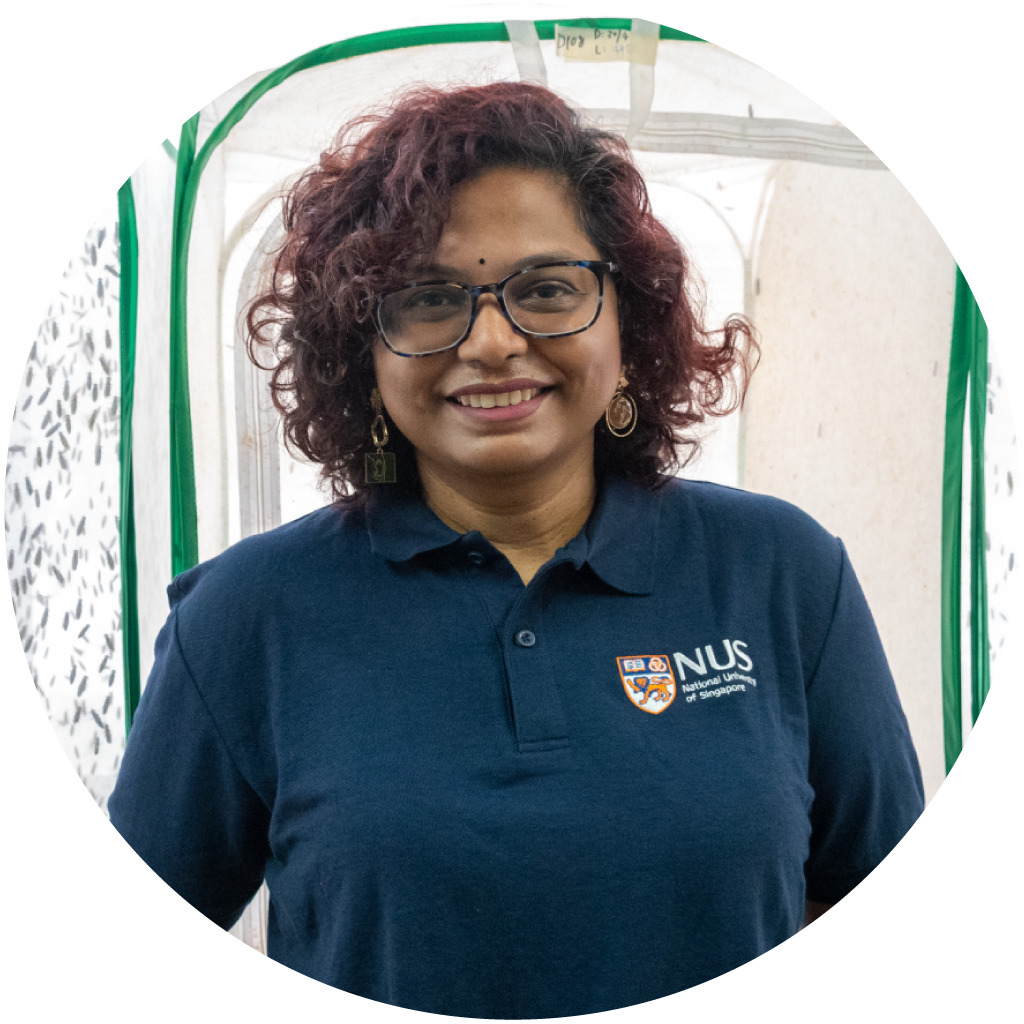
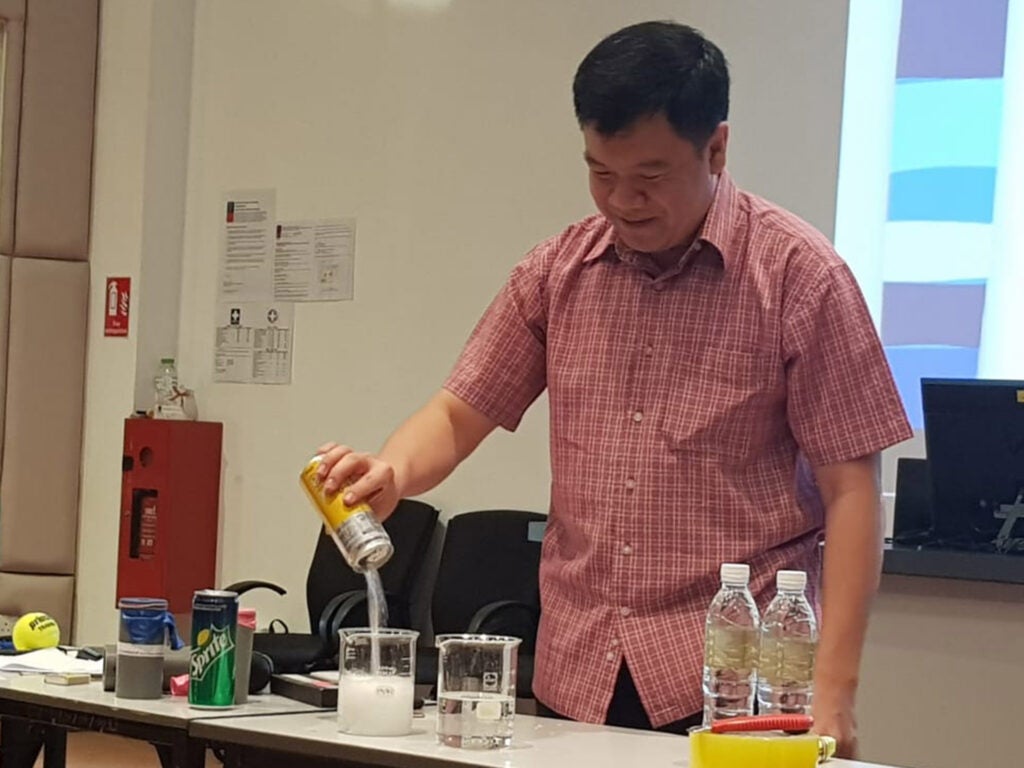
10 -9 big opportunities in the nanoworld
2.30 pm - 2.55 pm
Medicine-Science Library Training Room
Nanoscience is an exciting area of science that studies the world with objects of very small dimension. Different scientists study very small objects to better understand the nanoworld. We want to be able to manipulate and understand matter at molecular level, to create artificial structures. This is because structures exhibit novel and improved mechanical, chemical, electrical, optical and biological properties, due entirely to their nanoscopic size. Whenever scientists and engineers push their understanding and control over matter to finer scales (“nanoscale regime”), they invariably discover qualitatively new phenomena and invent qualitatively new technologies.
This talk will delve into the nanosized regime, some applications of nanotechnology as well as how to manipulate nanoscale objects and make structures out of nanomaterials. The talk will include fun-filled demonstrations to illustrate these concepts.
Professor Sow Chorng Haur
Prof Sow obtained his BSc and MSc in Physics from NUS and his PhD from the University of Chicago, United States. He was a postdoctoral fellow at Bell Laboratories, Lucent Technologies before joining NUS’ Department of Physics in 2001. His research interests include carbon nanotubes and graphene, and studies of nanostructured functional materials and their unique physical properties. He has authored and co-authored many papers in the field of nanoscience and nanomaterials. He is a recipient of multiple university- and faculty-level teaching excellence awards. Prof Sow is currently Vice Dean (Outreach and Admissions) at the Faculty of Science.
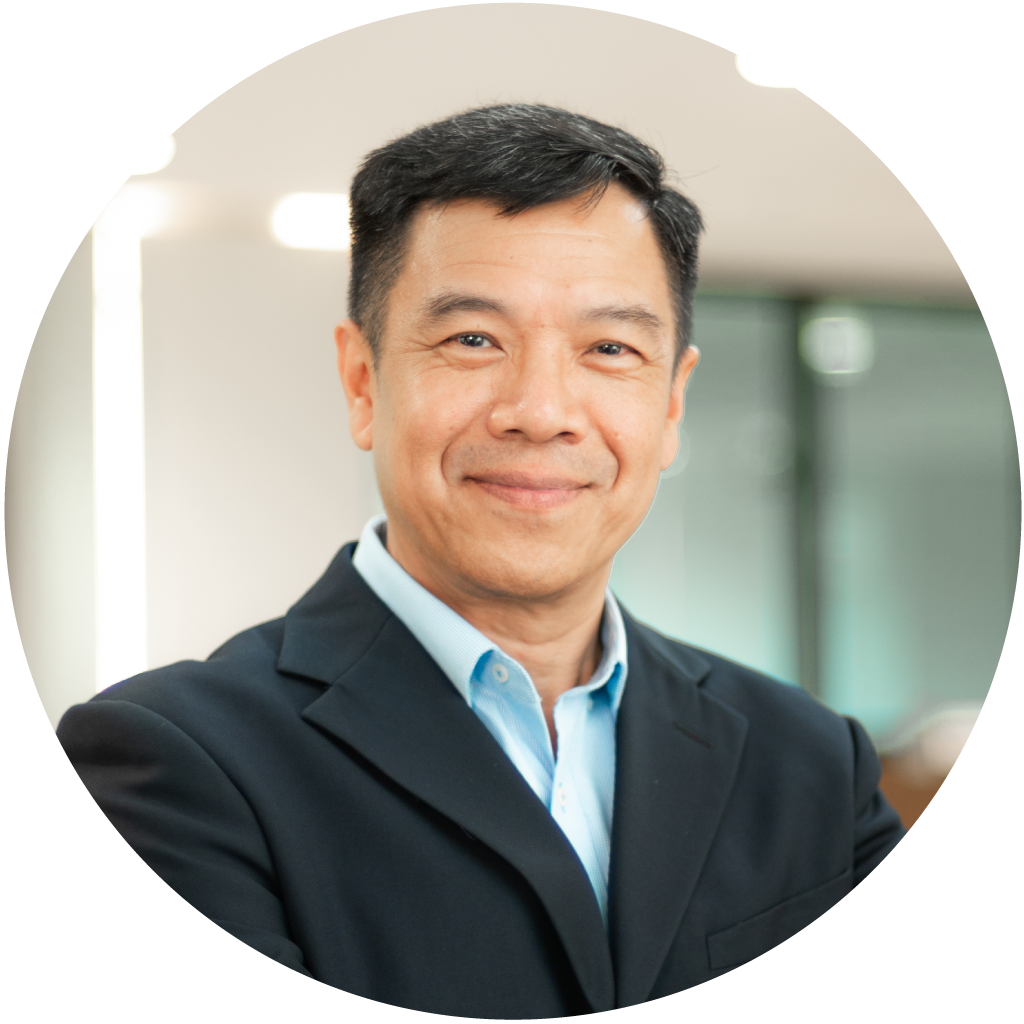

Charged up, ready to go: Electric vehicles
12.10 pm - 12.35 pm
Medicine-Science Library Collaboration
Space 3
Electric vehicles (EVs) are transforming the transportation landscape and with the rapid growth in demand for them, they are replacing traditional internal combustion engine (ICE) cars. EVs are powered by batteries only and have no tailpipe emissions. They also have a much lower noise profile and superior acceleration compared to ICE cars.
This talk will explore the fascinating history of EVs, from their early beginnings to current developments. The critical role of lithium-ion batteries, the key innovation enabling the widespread adoption of EVs, will be highlighted, along with key metals that are critical to manufacture these batteries. EV fire safety and its environmental footprint will also be covered.
Dr Foo Maw Lin
Dr Foo received his PhD in Chemistry and Materials from Princeton University, United States (US). He has performed research on materials chemistry and taught in the US, Canada and Japan. His primary interests are in renewable energy and interdisciplinary education. He is a senior lecturer at the Department of Chemistry, Faculty of Science.
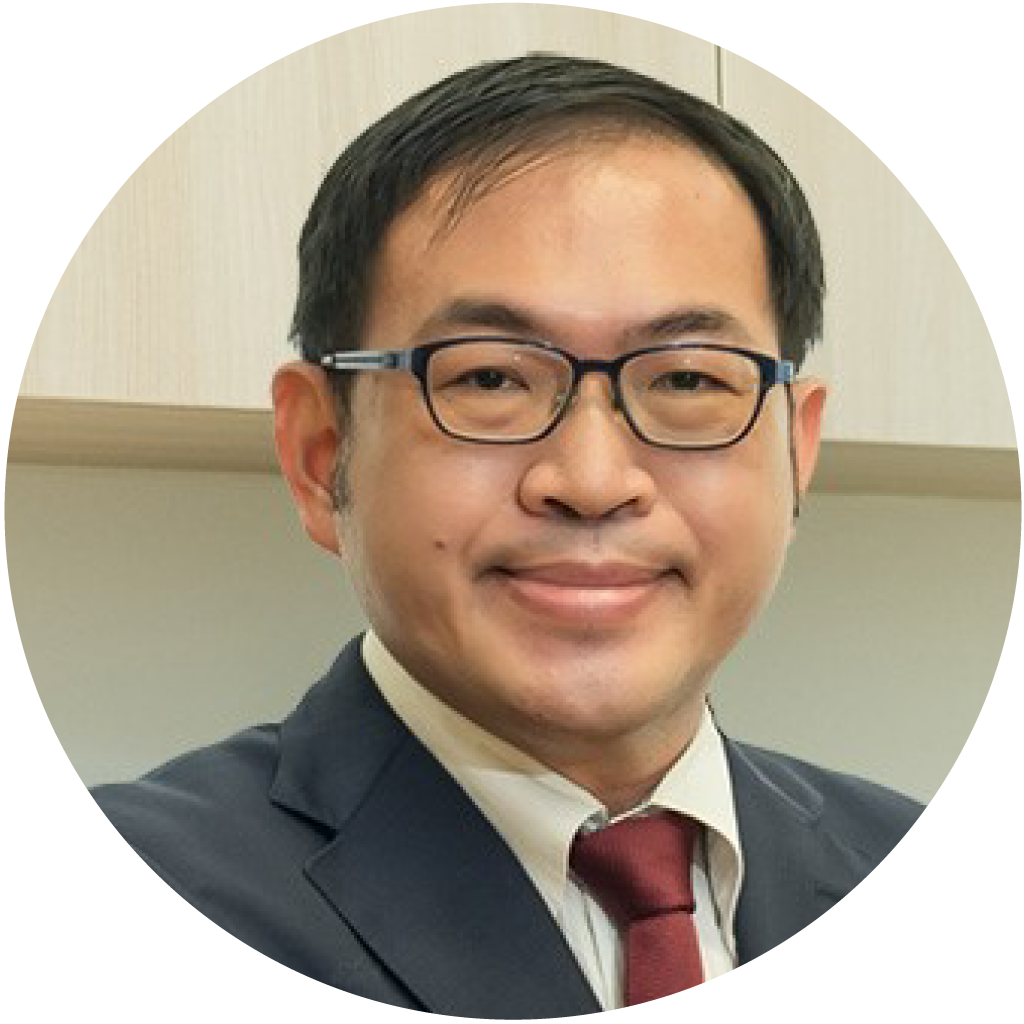
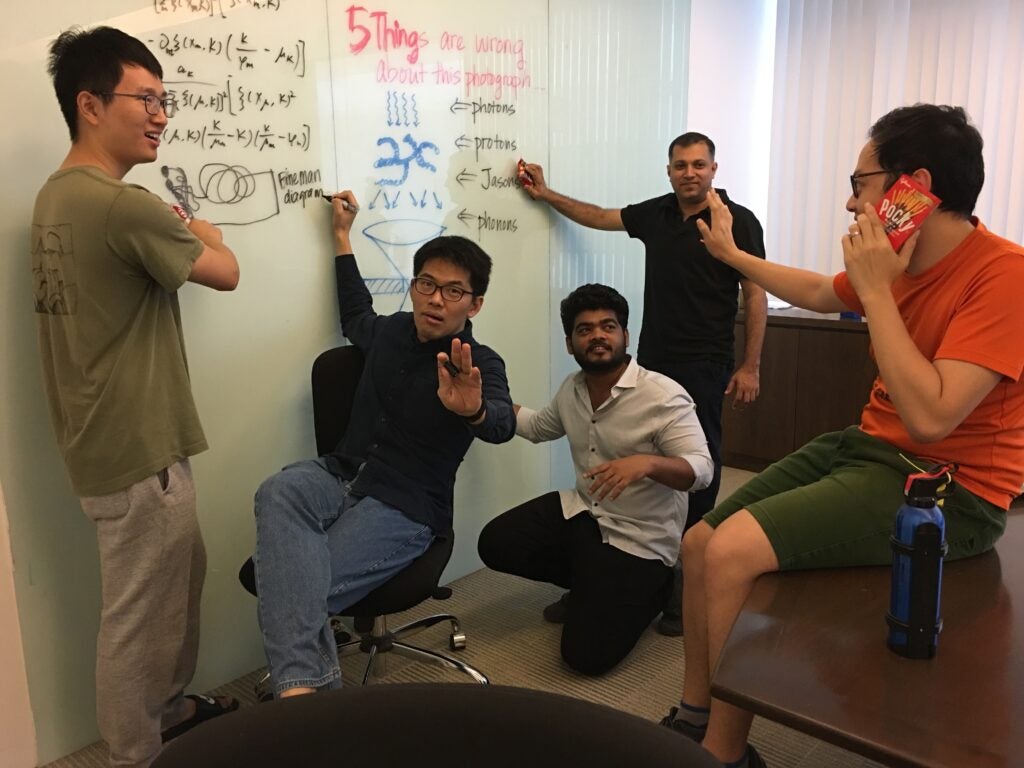
Using computational lenses and machine learning: How order emerges from disorder
2.00 pm - 2.25 pm
Medicine-Science Library Collaboration Space 3
The microscopic world appears immensely complex and disordered. Yet orderliness consistently and spontaneously forms at length scales far smaller than is visible to the unassisted eye. Hunting for and understanding how such order emerges in the microscopic world is a challenging and thrilling enterprise. Unbeknownst to most, there have been many breakthroughs in Xray and electron microscopy that dramatically improved our sensitivity to detect these tiny, fleeting phenomena. Complementary to these advances, we also learned how to turn the principles of light-matter or electron-matter interactions into computational lenses that help us see beyond what is possible with physical lenses. This productive combination of leaps in hardware and software has generated a torrent of observations of how chaotic groups of atoms and molecules move, change and interact.
This talk will show how machine learning is used on these massive observations to understand how order emerges in the micrometer and nanometer scale world.
Assistant Professor Duane Loh
Asst Prof Loh’s research uses machine learning to understand self-organisation and disorder-order transitions in the elusive mesoscale liquid boundary layer on interfaces and in micrometer-size water droplets that form clouds, resolve the dynamical structural heterogeneity in nanoscale phenomena (e.g. liquids and aerosols), uncover the complex interactions amongst biological cells, find hidden transmission routes of vector-borne diseases like dengue and design computational lenses to see tiny biomolecules better than what current physical lenses can. He is currently an assistant professor at the Department of Physics and the Department of Biological Sciences, Faculty of Science.
